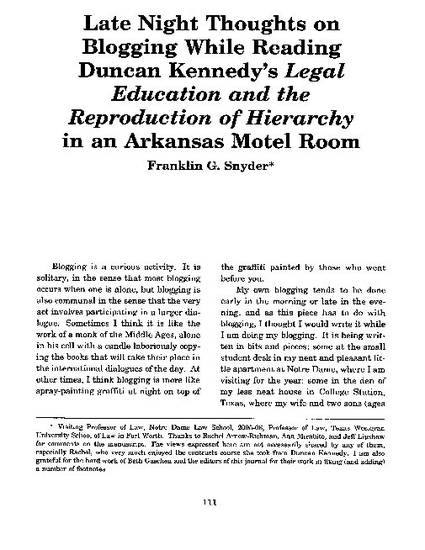
It has been more than twenty years since Duncan Kennedy published his seminal 'Legal Education and the Reproduction of Hierarchy'. In it he called for a radical assault on the hierarchies embedded in American law schools. But that assault failed. Over the past two decades, the hierarchies of legal education have, if anything, become even more fixed, insular, and status-driven, even while the elites of the practicing bar have changed dramatically and become more open to outsiders. It is vastly easier for the graduate of a fourth-tier law school to become a partner at an elite law firm than it is to be hired as a tenure-track assistant professor at even a non-elite American law school.
But law school hierarchies may be changing. Not as the result of a critical assault, but because vast changes in communications technologies have seriously eroded the control of information that is necessary for the survival of any non-functional hierarchy. In this paper, written for a symposium on blogging by lawyers and law professors, I revisit the insider world of Kennedy's 'LERH' and contrast it with the outsider-dominated changes being wrought by the Internet.
Available at: http://works.bepress.com/frank_snyder/4/
